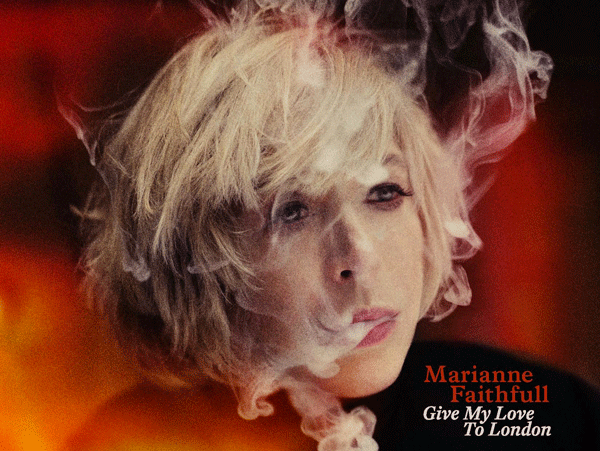TV Review / Sherlock 2016 Special: ‘The Abominable Bride’
It’s been a while since we
last saw our favourite deerstalker wearing sociopath sleuth in action; More
exactly; the beginning of 2014. It’s now 2016 and with it comes a one off
special in the form of The Abominable Bride. Set in the 19th
Century, the time of Arthur Conan Doyle’s original novels, it’s a novel concept
that works, just about.
When we say ‘just about’,
of course, that’s exactly the point. This is a deceiving episode in that it
begins as a standard period narrative but soon reveals itself to be all in, as
it where, the Mind Palace. It’s a clever concept that will please many fans of
the modern narrative but really throw those expecting an old style detective
story right off. Of course, we kind of guessed this wouldn’t be any ordinary
adventure and if it had been, there would have been an equal number of voices
expressing a disappointment at the departure from the quirky narrative
structures that Messrs Moffatt and Gatiss are known and infamous for.
But overall, what did we
make of The Abominable Bride? Of course, it was gloriously improbable and mad
and that’s just what it should be. Sherlock, the show and the character, has never
been anything less than unexpected and innovative though so it’s only right
that this special was one of the most surreal episodes yet.
The 1880’s versions of the
cast were often amusing, although rarely played for laughs. Perhaps the most
chuckle inducing of them was Mycroft Homes, a rather bulked up Mark Gatiss. The
sight of him sat in the Stranger’s Room surrounded by what by anyone’s standard
is a very large morning meal is quite at odds with the secretive, rakish
character we’re used to seeing. Indeed, the hilarious moment Holmes and Watson
enquire via various degrees of sign language at the reception of The Diogenes
Club as to his presence is hilarious.
Other iterations of
characters include a successfully dragged-up Molly Hooper in the rather
atmospheric morgue. But with the exception of the former, the cast are quite
close to their already known characterisation. Mrs Hudson is still as funny as
ever, casting humourous references to the role of female characters in the
original stories from almost her first line. She’s still, however, the Landlady
and, quote Holmes, ‘has the power to starve’ them!
Holmes of 1880’s though is
rather more of the age, often boorish and rarely complementary of anyone or
thing without a catch. Saying that, from the modern perspective, he’s also
absolutely hilarious on occasion. The scene when he and Watson stake out the
mansion waiting for The Bride to arrive is a case in point. As Watson attempts
to make conversation as old friends do, his reactions are right on character
with the cold hearted period version.
As if he hasn’t returned
enough already, a certain Moriarty also makes an appearance and confirms just
what more eagle eyed viewers may have noted all along. That is, this whole
sequence is a Mind Palace moment. As Sherlock himself states at the end of the
episode, there is no way he could still be alive but it appears he lives on as
a ‘virus’ in Sherlock’s ‘hard drive’, explaining a few non chronological
moments scattered throughout the episode.
But once the credits have
rolled, what is the viewer left with? Now, we watched this twice to get a
proper handle on it, but on first watch it will have either bowled you over in
awe or totally gone over your head. As a seasonal indulgence, (as this would
never work in a regular series), it was forgivable though. After all, who else is producing television as
exciting as this at the moment? Not too many, it has to be said. If you’re a
Sherlock purist though, it’s probably not your seven percent solution.
Whatever your opinion
though, it’s a sad New Year without Sherlock and this will keep viewers guessing
until series four comes in 2017. But as thought provoking, brave drama goes
this is certainly up there with the best.
Best moments: Spotting the
regular cast in their Victorian guise was fun, with Mycroft Holmes and Molly Hooper’s
iterations the most effective for our tastes. The sign language scene at The
Diogenes Club is one to remember for sure.
Casual sexism: Throwing
the frequent accusations of sexist typecasting often aimed at him, Stephen
Moffat throws all the wood on the fire he can here to hilarious effect. Of
course, Sherlock is not a show that revels in misogyny and the final moments
here were certainly an answer to those who have questioned such aspects of his
writing as a whole.
Scare factor: This was
certainly the most atmospheric episode yet, taking full advantage of the gas
lamps and darkened sets to create some real scares. Did anyone spot the references
to Kill Bill as well? (Hint: The Bride.)
What next: Bring on series
four. There is no percentage of solution strong enough to compensate for the
wait until the new series!
Words: Sebastian Gahan.
Image © BBC



